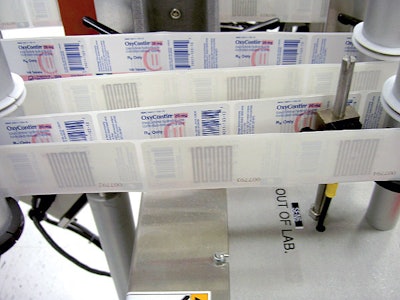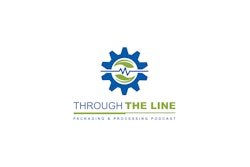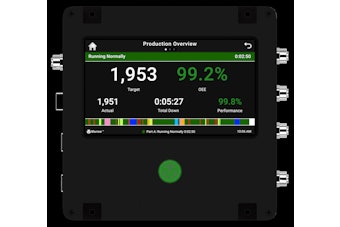Packaging for drugs—using radio-frequency identification tags—will be pushed into the headlines when the Senate finally takes up—and likely passes—legislation making it legal for wholesalers to import brand-name pharmaceuticals.
Such a bill passed the House by a vote of 243-186 in July 2003, and might have passed the Senate last year if Majority Leader Bill Frist (R-TN) hadn’t reneged on a promise to bring the bill up for a vote. The bills are designed to give United States consumers access to pharmaceuticals that sell for considerably less overseas than they do in the U.S.
In 2005, however, Sen. Frist will have a difficult time blocking the Pharmaceutical Market Access & Drug Safety Act (H.R. 700/S. 334) for a couple of reasons. The bill clears the way for importing into the United States drugs made here and then exported or drugs made in developed countries in Europe, Canada, or elsewhere—so long as the importer can verify the drug package’s chain of custody. Almost everyone agrees that scannable radio-frequency identification (RFID) tags will satisfy that requirement.
Four factors will lead to Senate passage this year, three of them coming into play for the first time. This year, as last, a majority of senators are likely to support S. 334. But that majority appears to be assured because new estimates of the cost of the Medicare outpatient drug benefit, which starts January 1, have gone through the roof. Members of the Senate and House are under new pressure to find a way to cut drug costs for seniors. By almost all counts, drug reimportation will help do that.
Also, supporters of S. 334 say they won’t be bamboozled this year by Sen. Frist as they were in 2004. “We’re not relying on a similar promise this year,” notes Barry Piatt, spokesman for Sen. Byron Dorgan (D-N.D.), one of the co-sponsors of the bill along with Sen. Olympia Snowe (R-Maine). “The bill will come up for a vote, and there is easily a majority for it.” The Dorgan-Snowe bill already has nearly 30 co-sponsors.
Moreover, the Bush administration has opposed reimportation mostly out of concern for the safety of the drugs in the distribution chain. But Richard Carmona, the U.S. Surgeon General, says that concern will evaporate once new anti-counterfeiting technologies are widely adopted.
RFID testing
Drug manufacturers are in the midst of the first RFID pilot tests. It includes, in one instance, tagging of drugs manufactured in a European plant. That company declined to be identified, for fear of spurring passage of the reimportation bill.
A number of companies have talked generally about their plans. But in an interview with Packaging World, Peggy Staver, Pfizer’s director of trade product integrity, provided new details on her company’s current thinking. Pfizer, Inc., New York, will tag 30 and 100-count bottles of Viagra sold in the U.S. by the end of 2005, she says. Pfizer is considering use of 13.56-Mhz high-frequency tags on bottles and UHF tags on cases and pallets of Viagra. According to Staver, pharmacies have expressed interest in gaining additional experience with 13.56-Mhz tags in their pharmacy settings, while the UHF tags are more appealing to wholesale distributors who are dealing with greater read ranges in warehouse environments.
Because of the small size of those bottles, Pfizer will probably find itself in the same position as Purdue Pharma L.P., Stamford, CT, which had to use UHF Class 0 EPCglobal tags on bottles of OxyContin and Palladone. Purdue Pharma is putting 915-Mhz tags on bottles of those two opiate pain medications that are shipped to two of its largest customers, Wal-Mart and H.D. Smith Wholesale Drug Co., Springfield, IL, the seventh-largest drug wholesaler in the U.S. Class 1 tags, which have more functionality, were available, says Dave Richiger, executive director, package design & development for Purdue Pharma, but they were not small enough to fit on the bottles.
Class O problems
The use of Class 0 tags poses some problems, however. For example, data has to be programmed into the RFID chips in Asia where they are manufactured. The chips then travel through Europe where antennas are affixed and the tags receive final processing before they arrive at Purdue’s facilities in the U.S. where the tags are affixed to bottles.
This means the supply chain is much lengthier—and the tags take longer to arrive—than would be the case with Class 1 tags, which Purdue could “write to” in its own distribution centers. This problem will go away, however, once Generation 2 UHF tags become available sometime in 2006.
“Our next step is installing additional capacity on our packaging lines so we can tag cases and pallets,” explains Richiger. “We need to purchase antennas and readers which can interface with our enterprise resource planning [ERP] system.”
The Food and Drug Administration has encouraged the adoption of RFID tagging via a Compliance Policy it published last November. That policy allows drug companies to undertake “pilot projects.” The FDA is mainly concerned that radio-frequency energy from RFID tags does not degrade the drug quality, primarily from heating the drug mixture.
Apparently, there were no drug quality problems for any of the solid dose drugs used in last year’s Project Jumpstart tests, run by Accenture, the consulting firm. In that test, Pfizer was just one of several drug companies that participated in Jumpstart (www.packworld.com/go/w141).
Which company is responsible?
The congressional drug reimportation bills specify that wholesalers, not drug manufacturers, would have to establish and maintain the chain of custody. But H.D. Smith, the wholesaler receiving Purdue Pharma’s RFID tagged products, is already knee-deep in RFID implementation at its Springfield, IL, facility. Bigger wholesalers such as Cardinal and McKesson are also in various stages of RFID testing and implementation.
That should assure Bush officials like Surgeon General Carmona that reimportation can be done safely, opening the way to passage of congressional legislation and providing a major boost to RFID implementation by drug packagers.
That said, the pharmaceutical industry well understands that the devil is in the details, so RFID implementation throughout the supply chain isn’t likely to be either quick or painless. In a bit of irony, the price differential between drug costs in the U.S. and offshore seems to be significant enough to cover the additional costs.
























